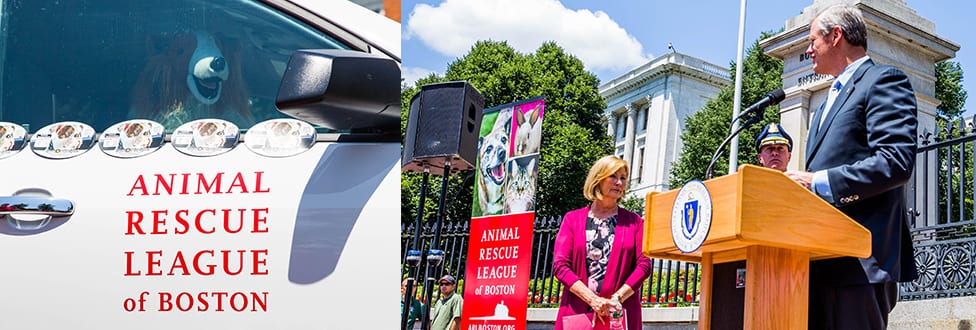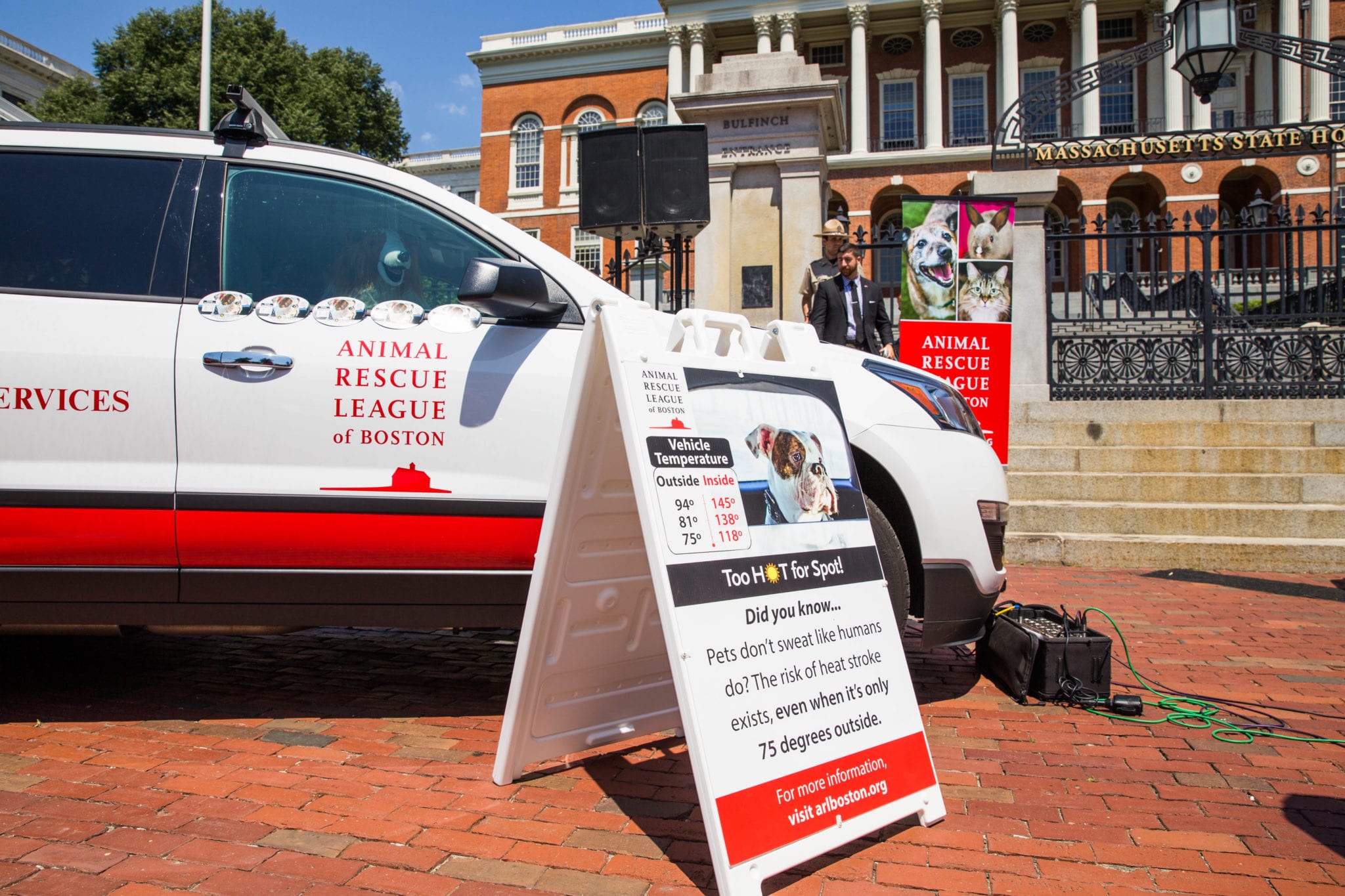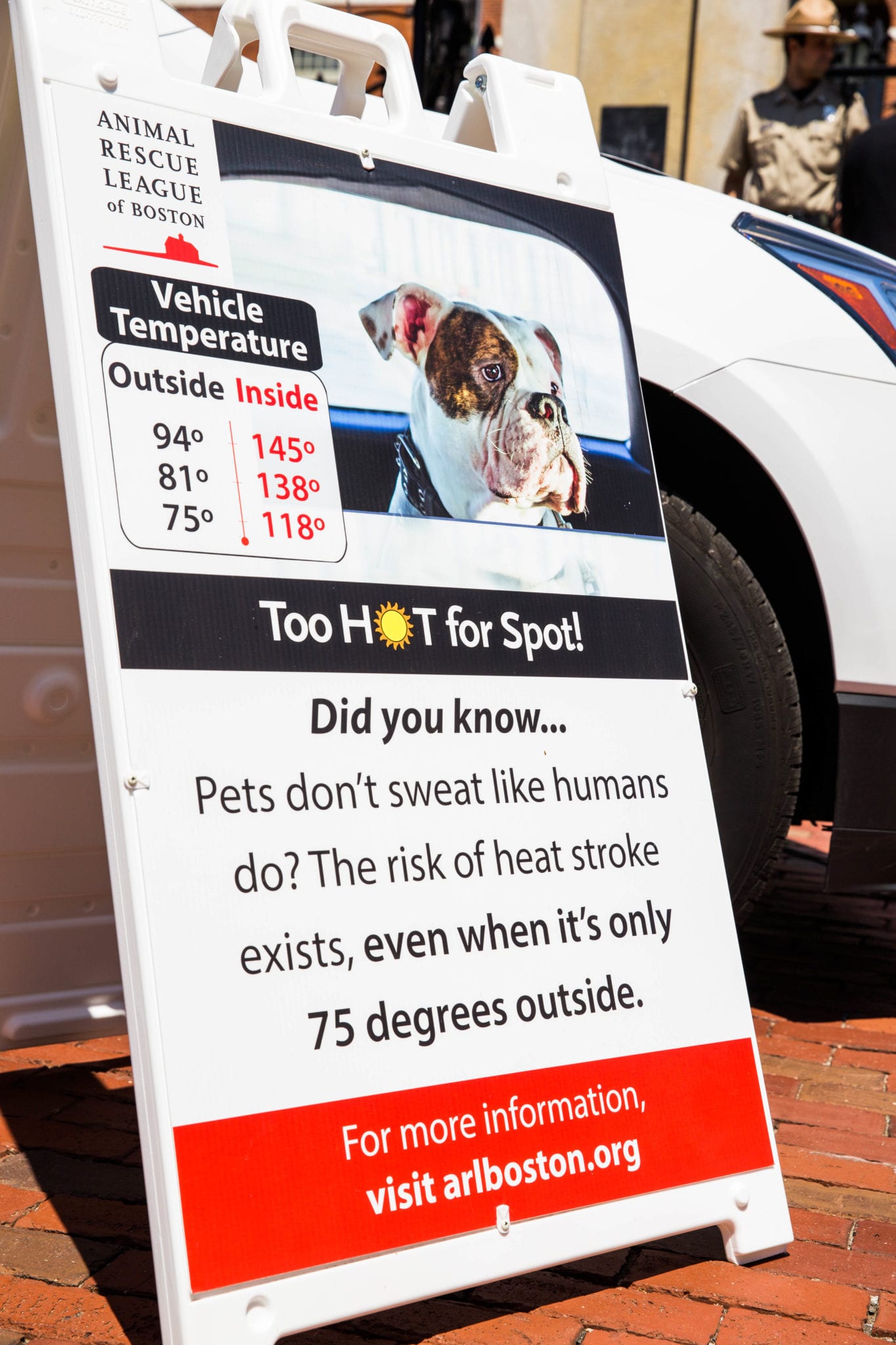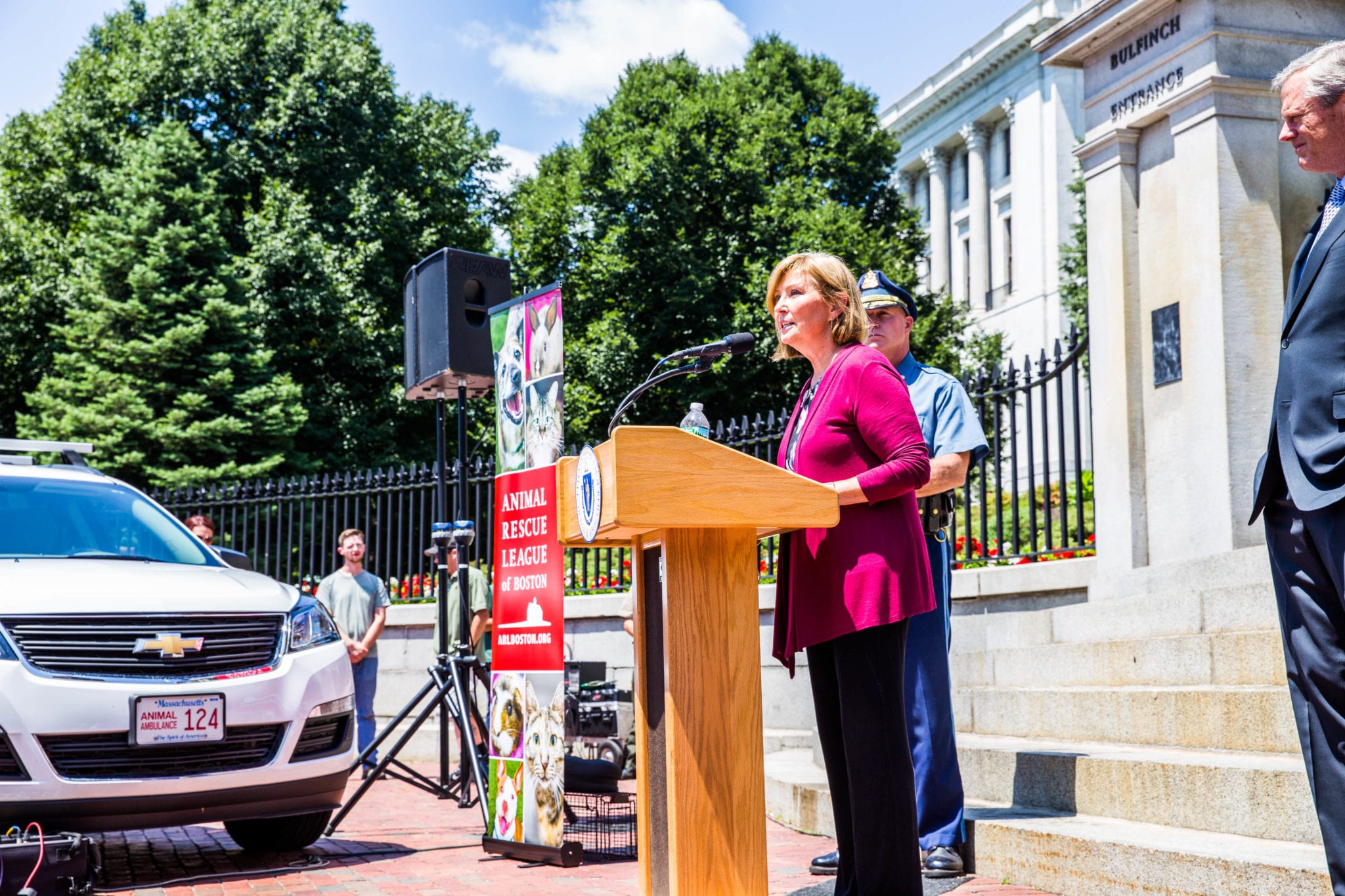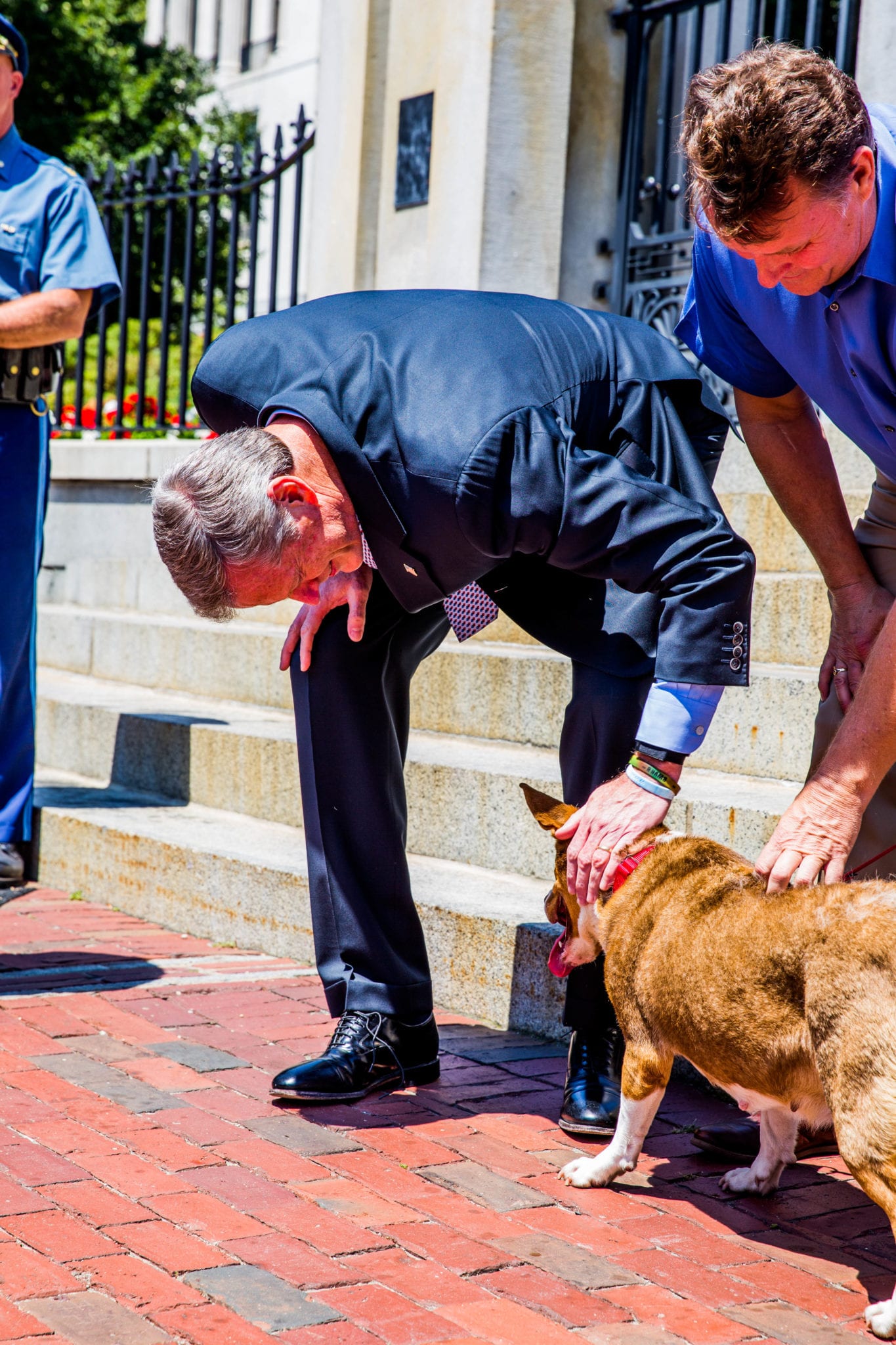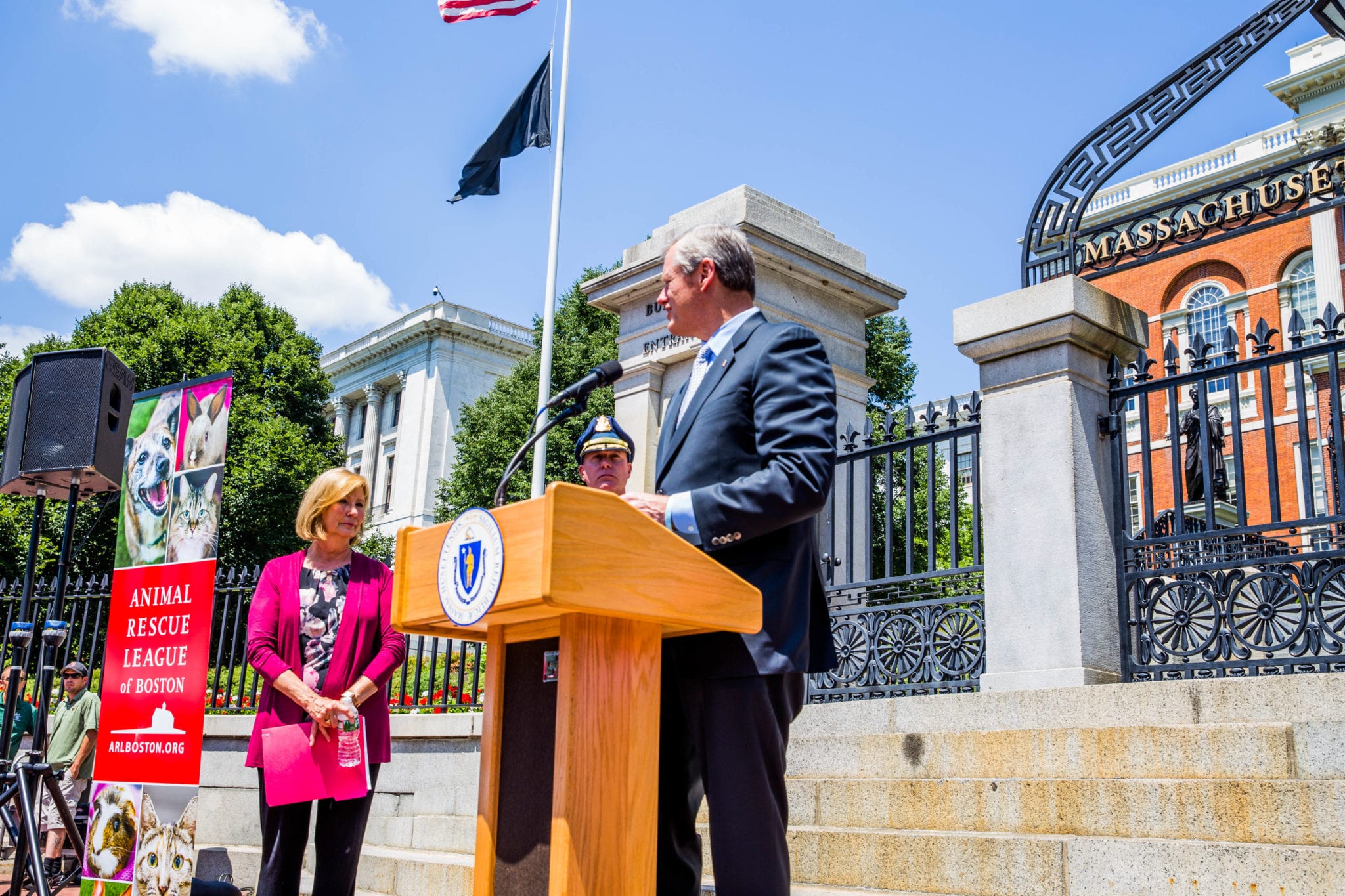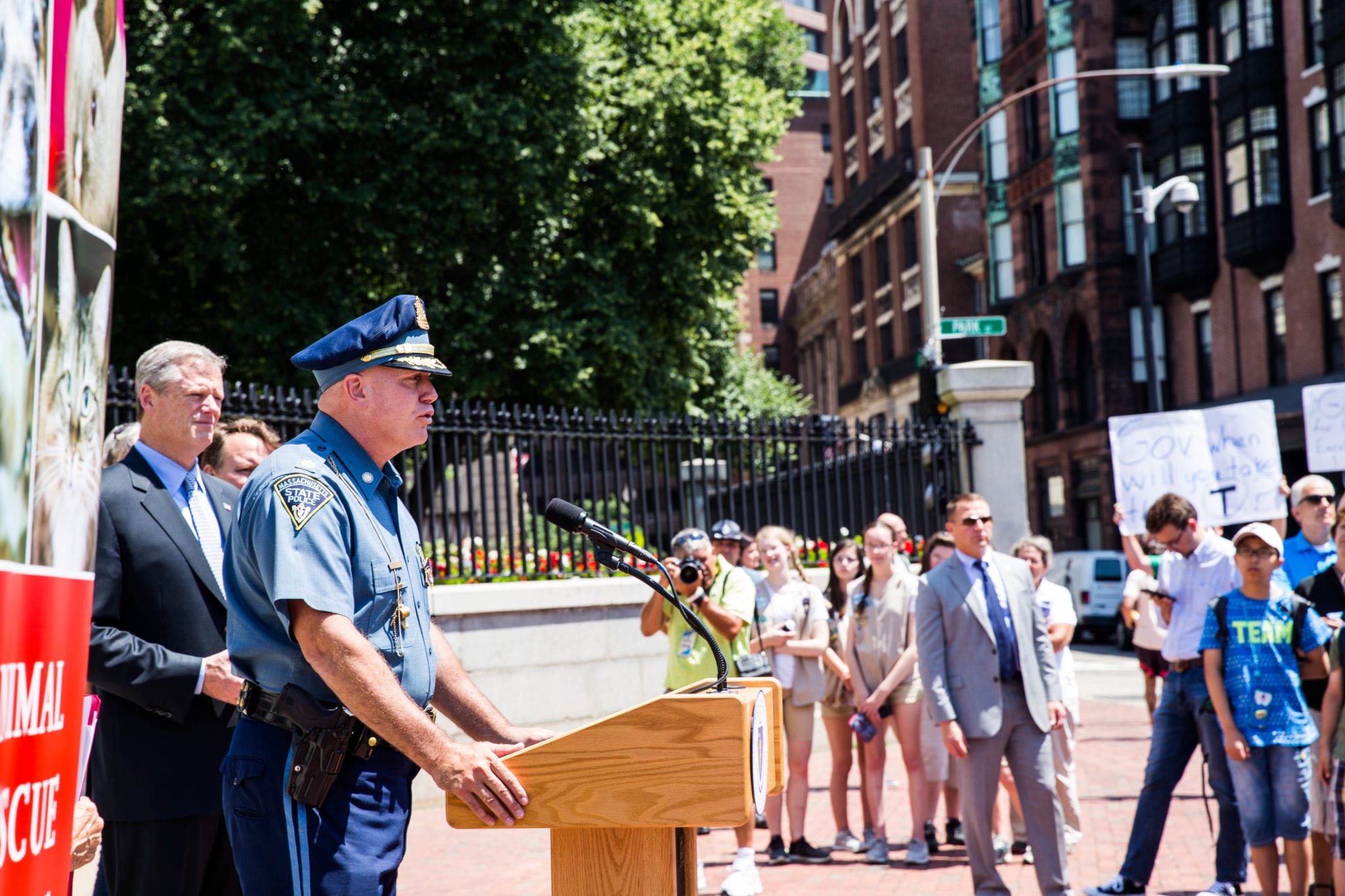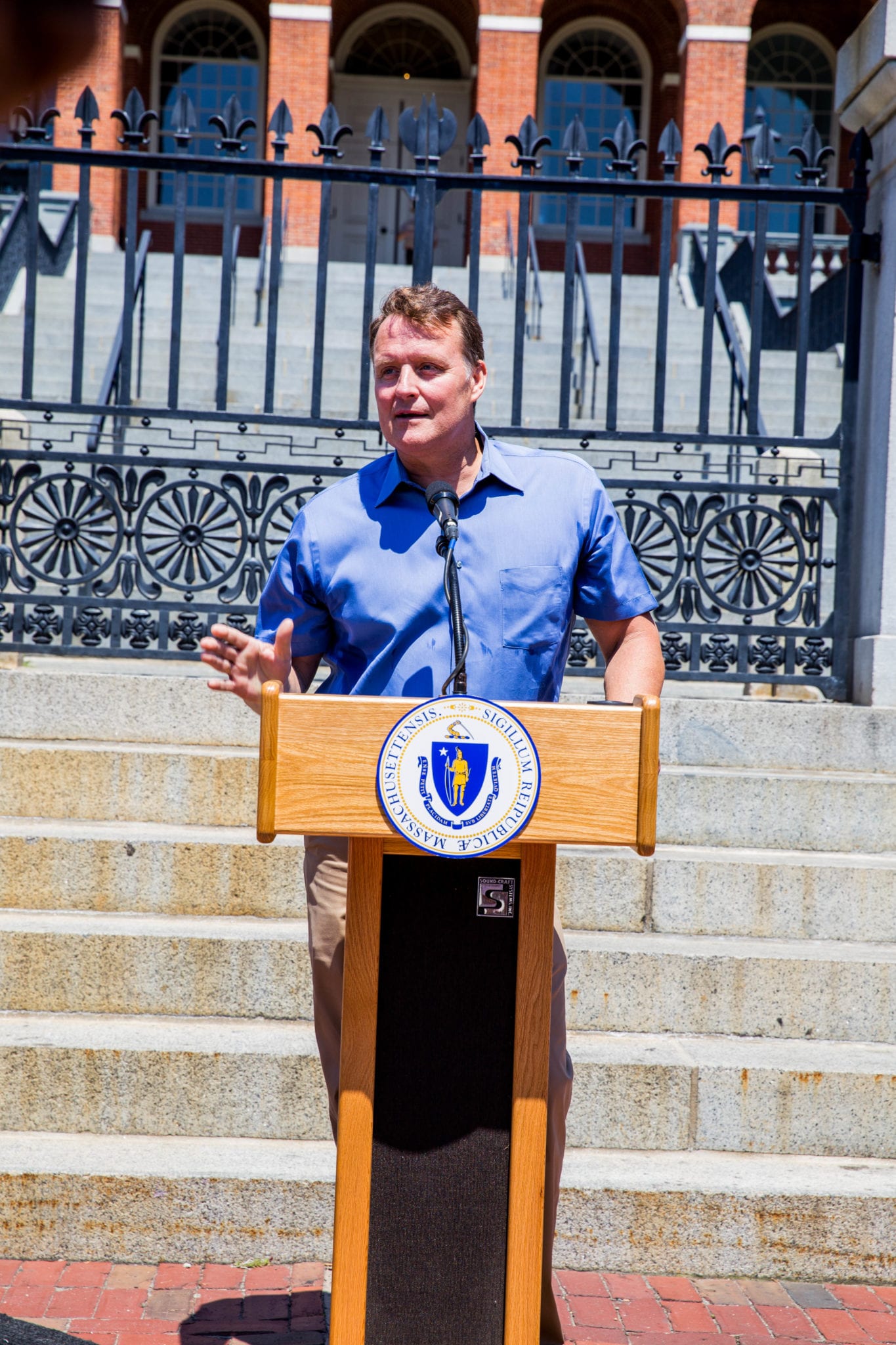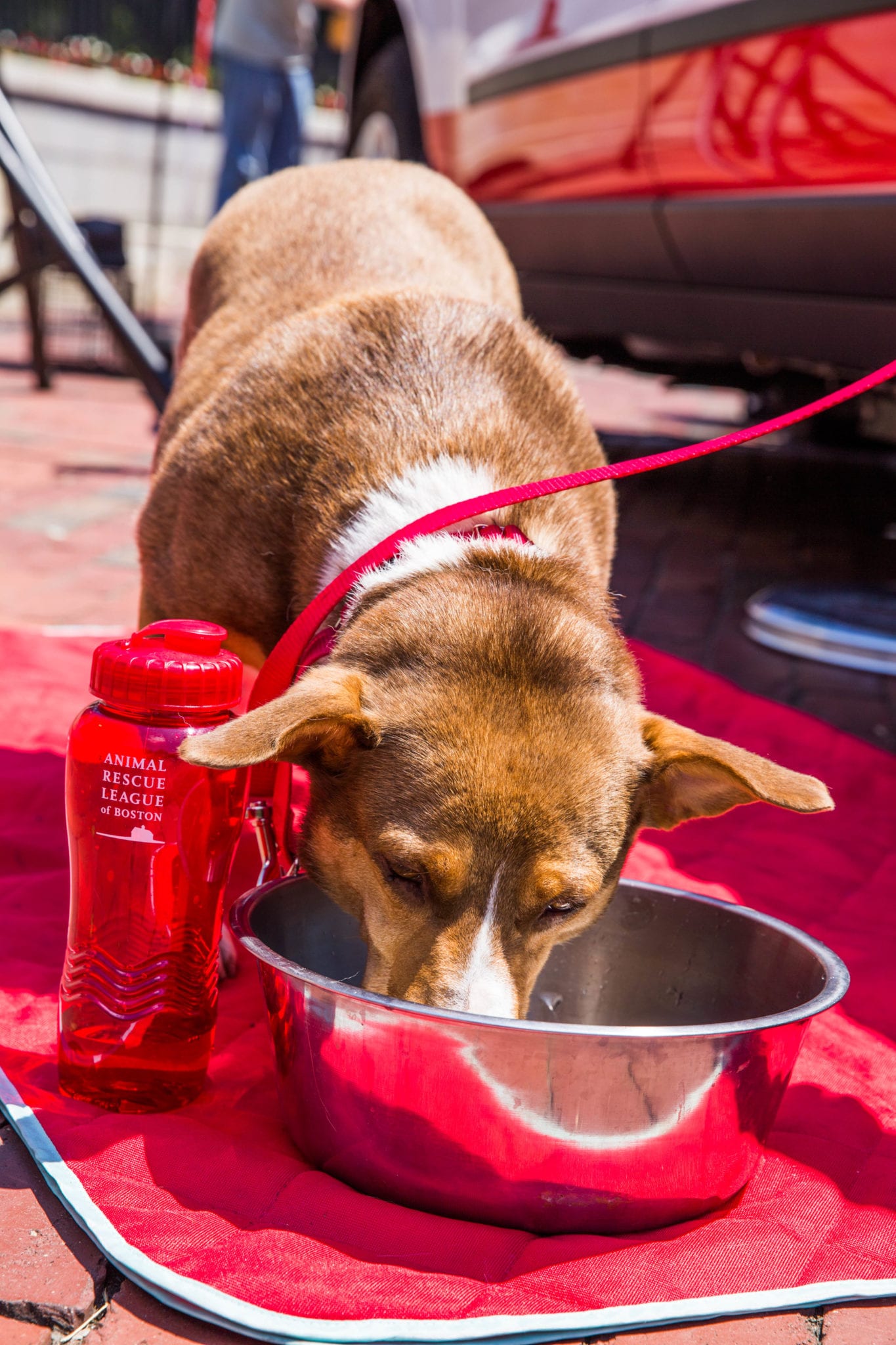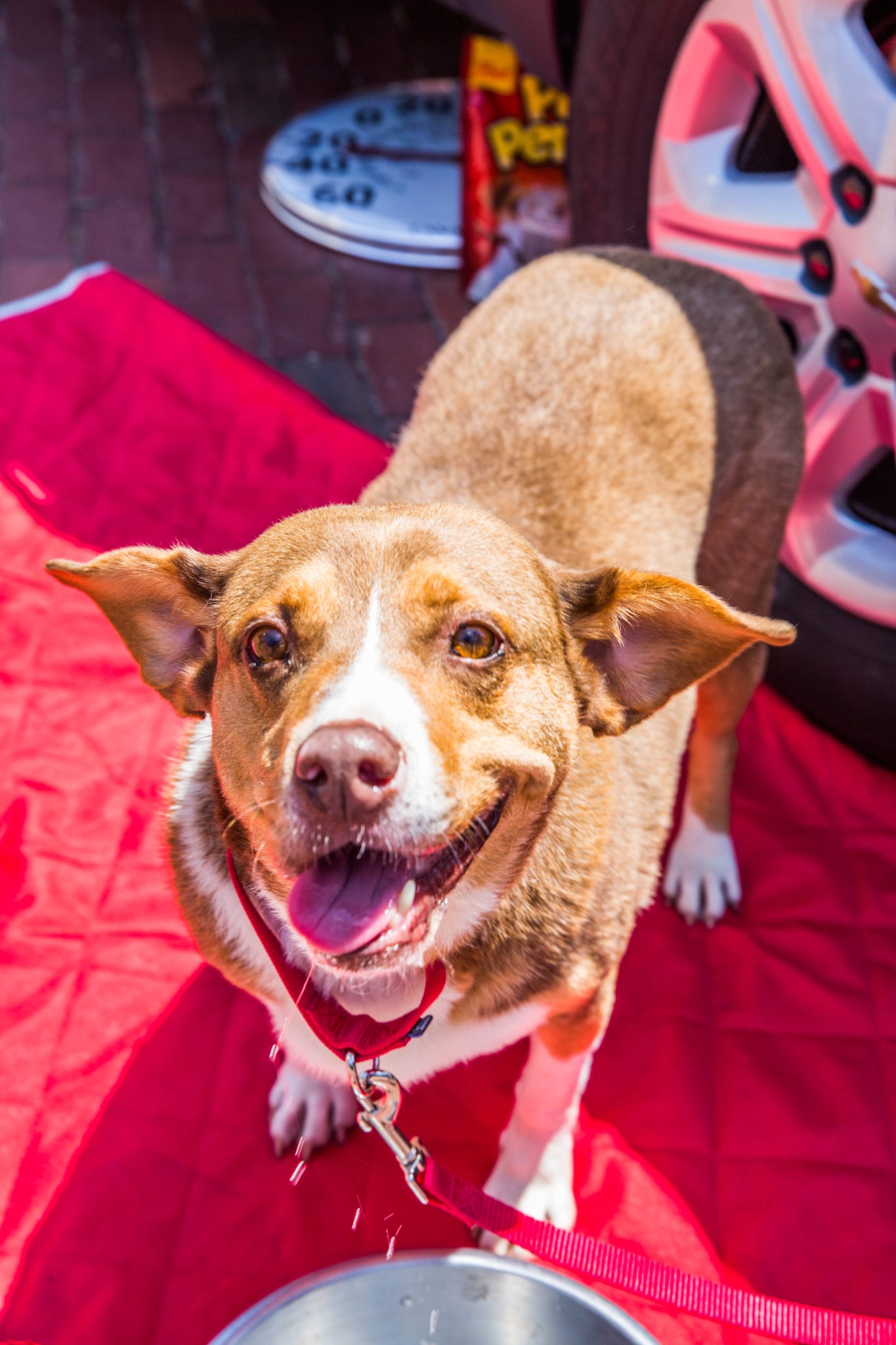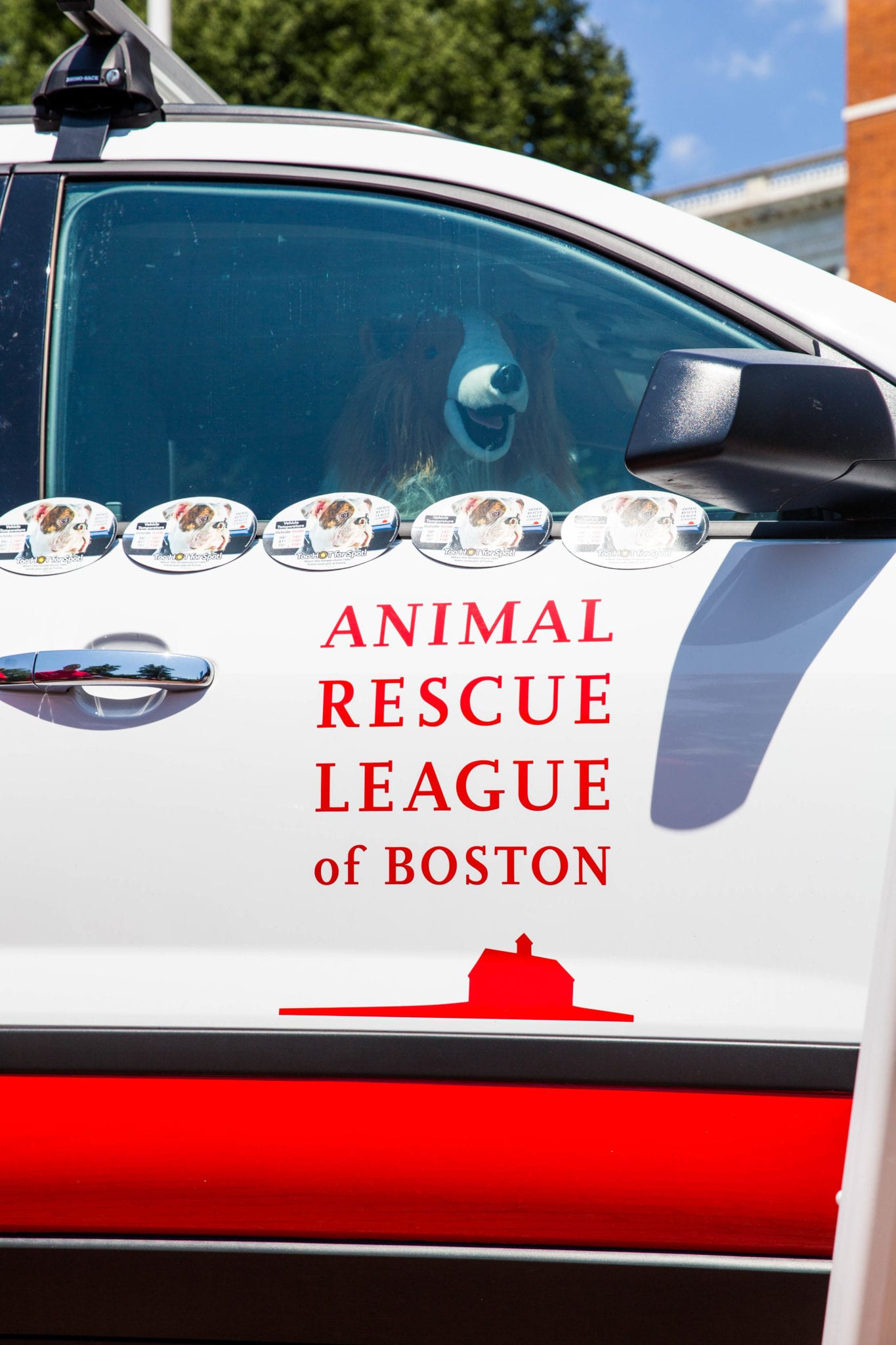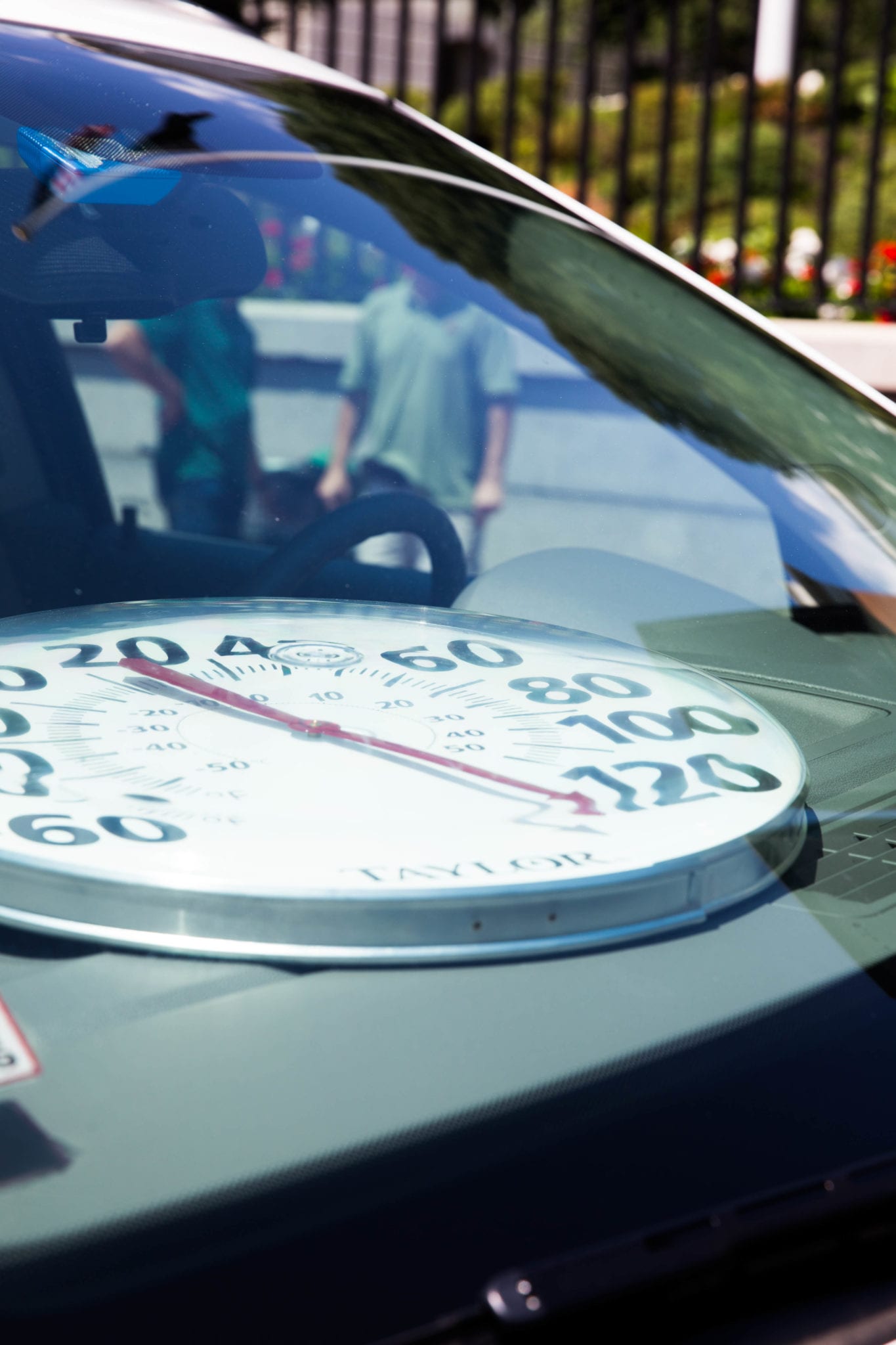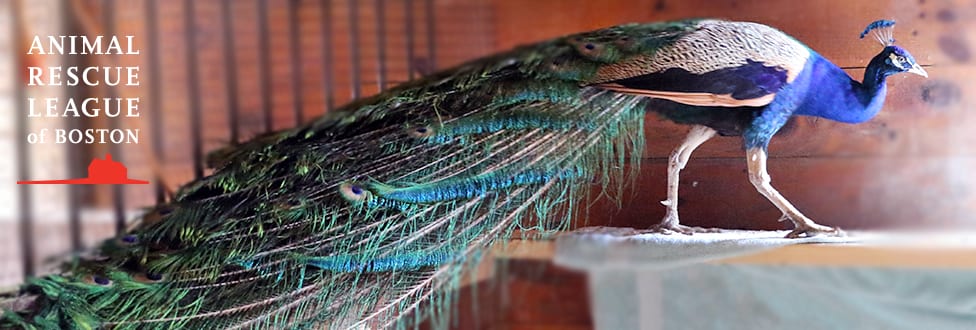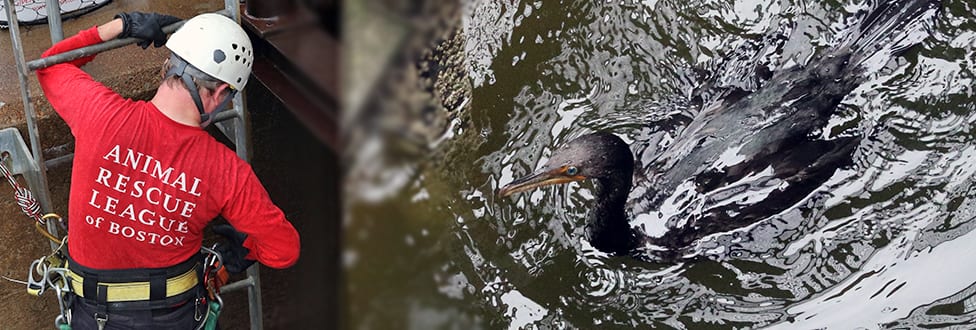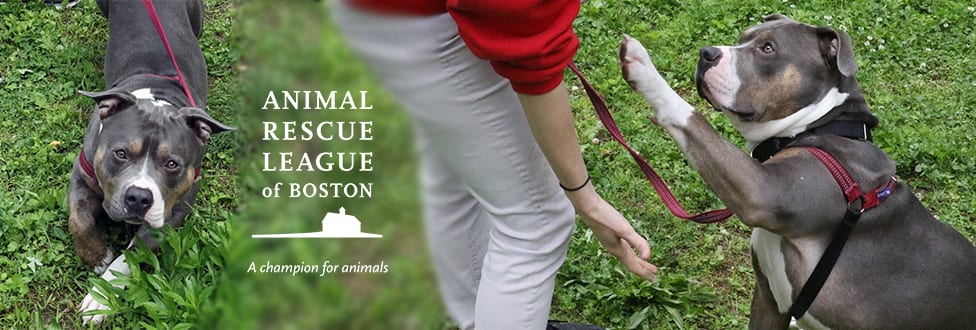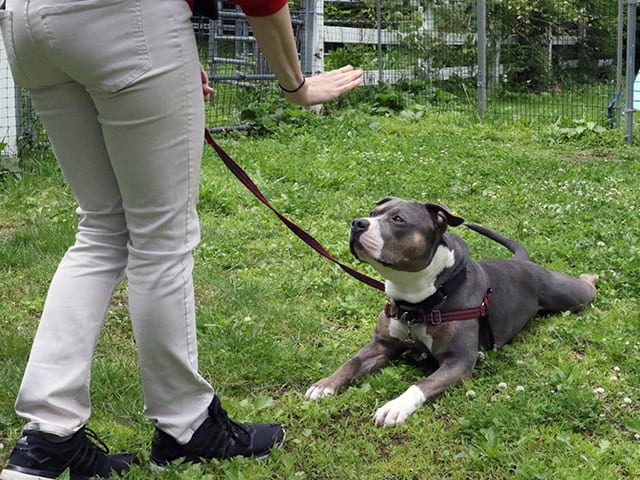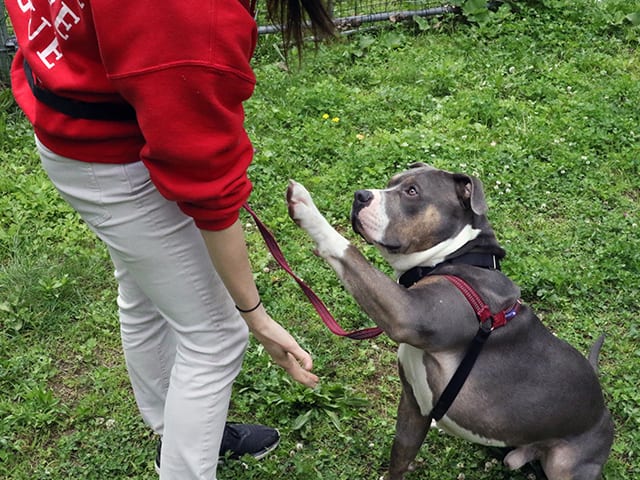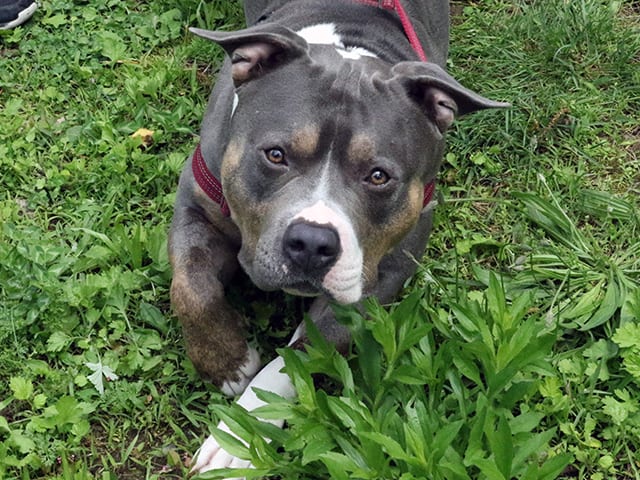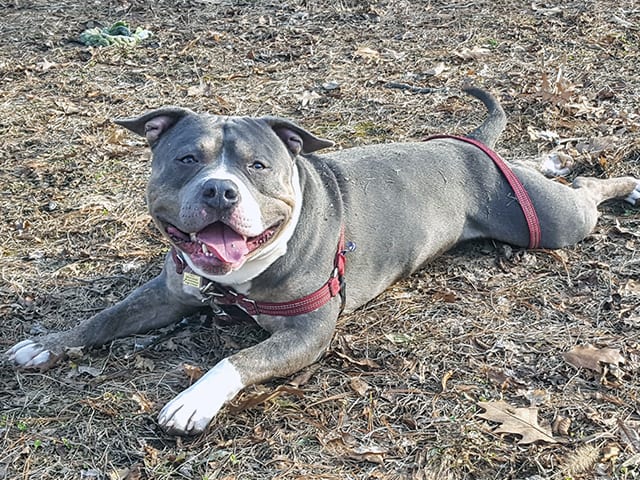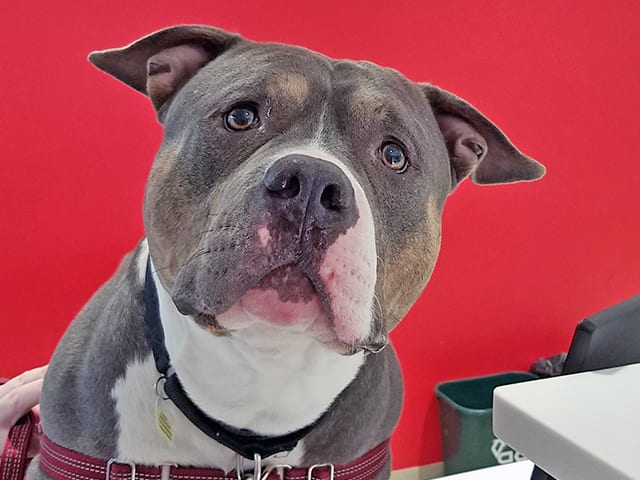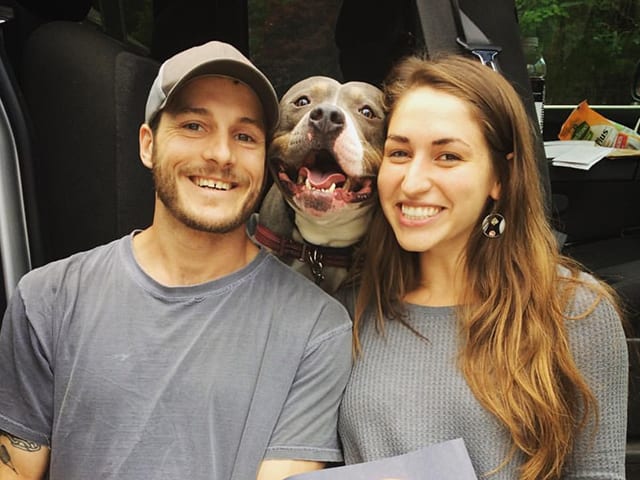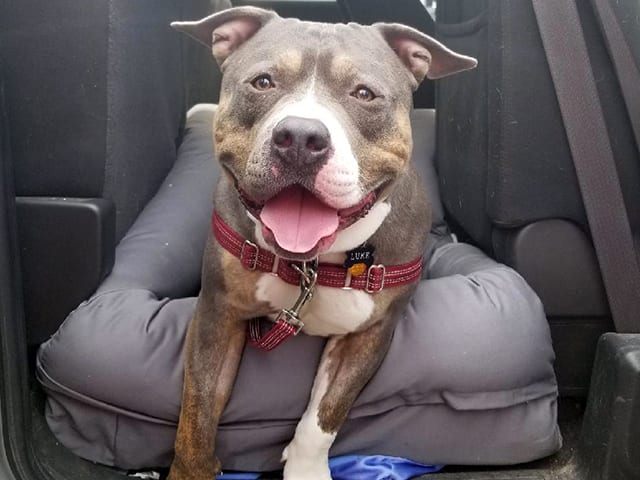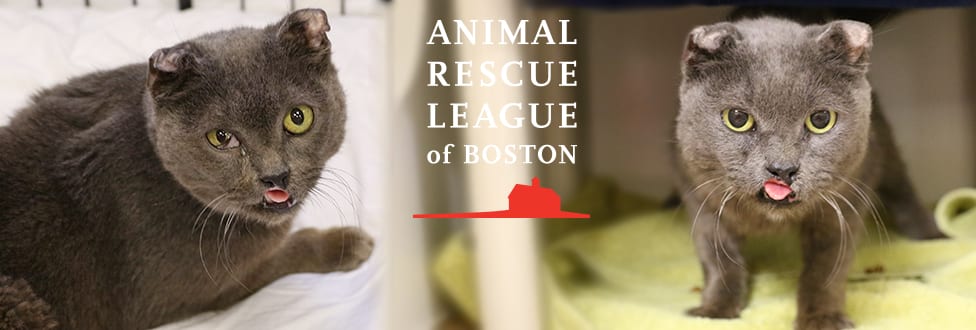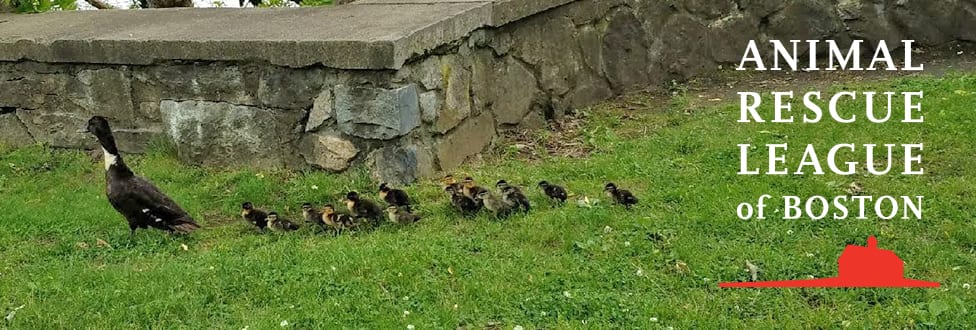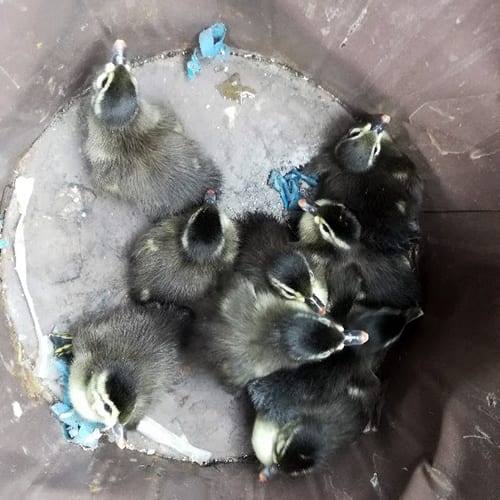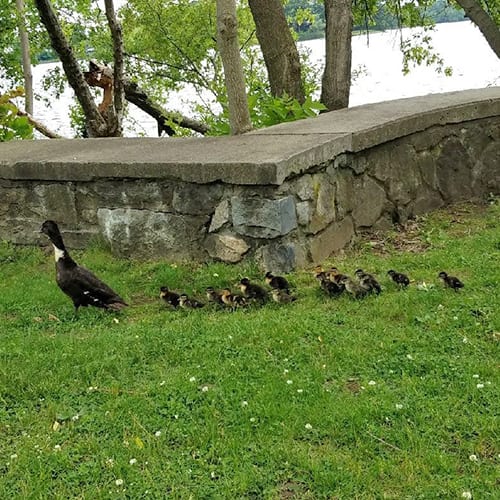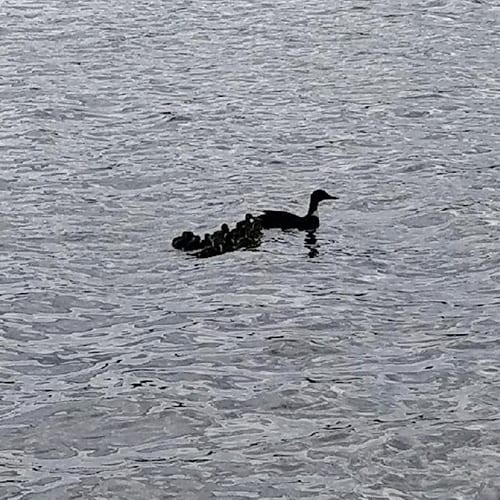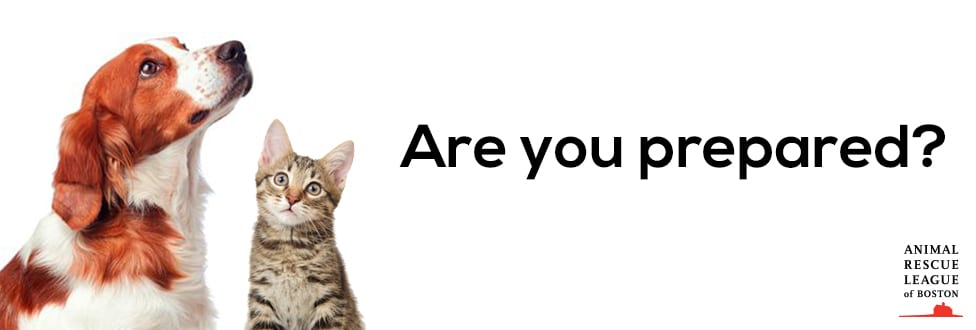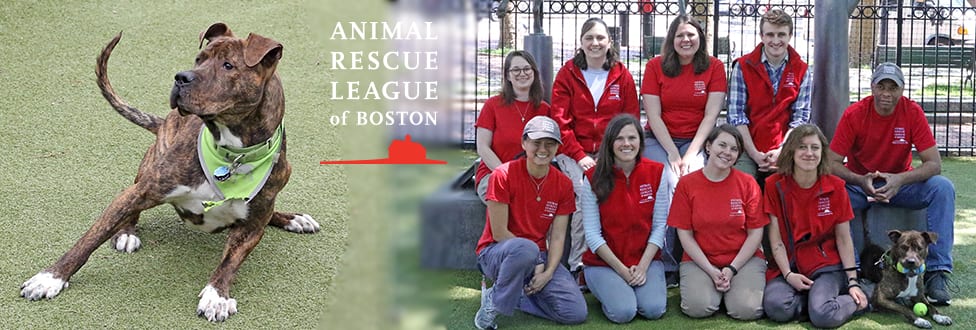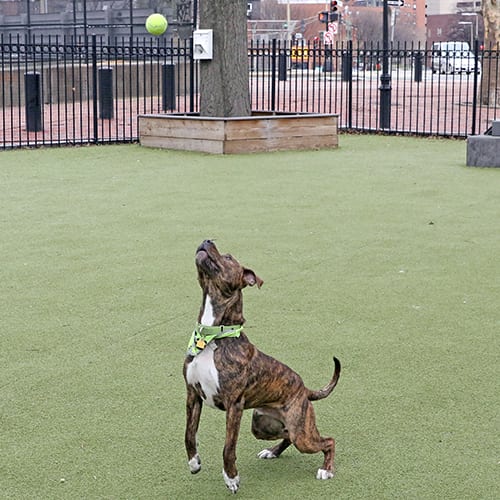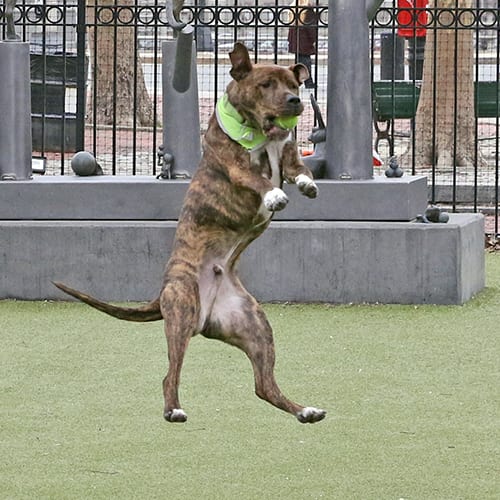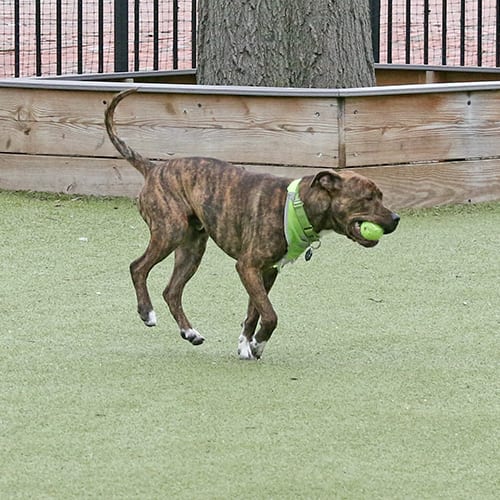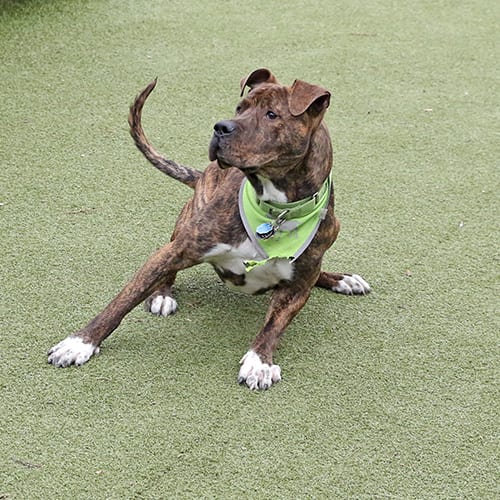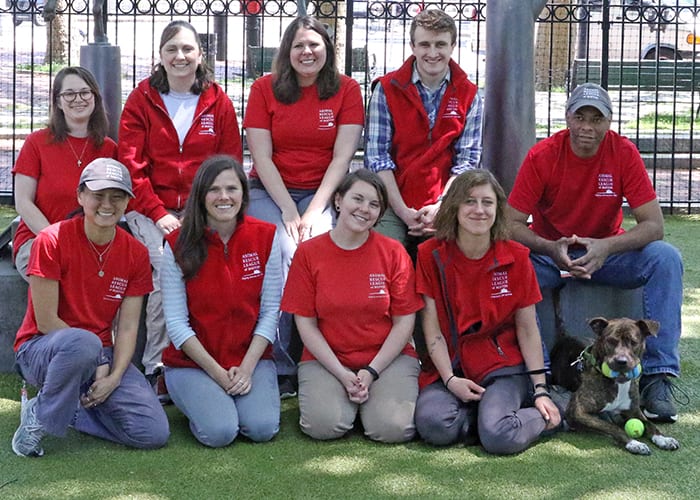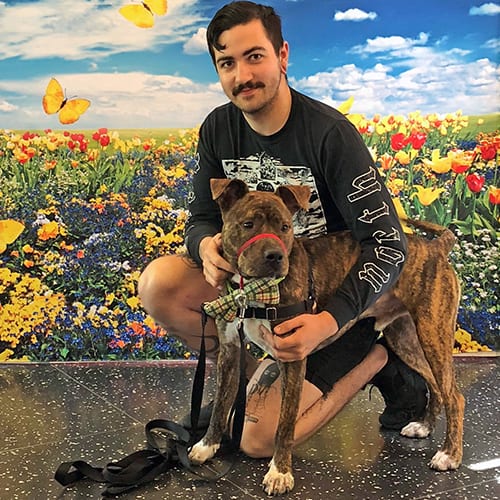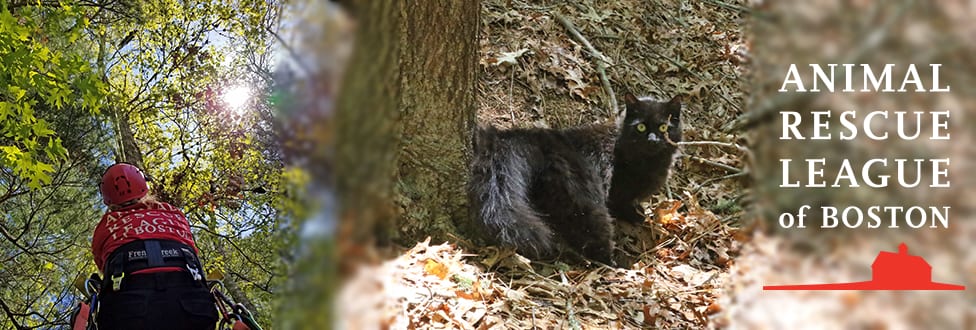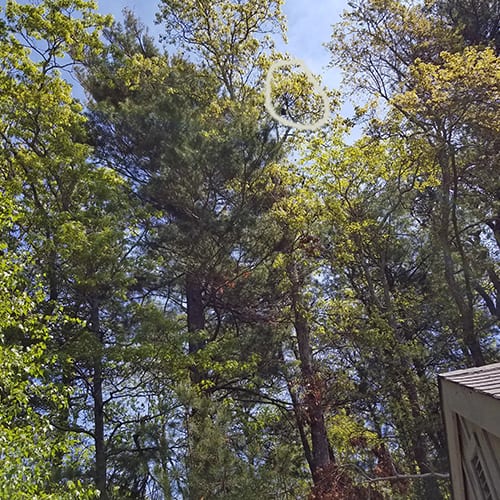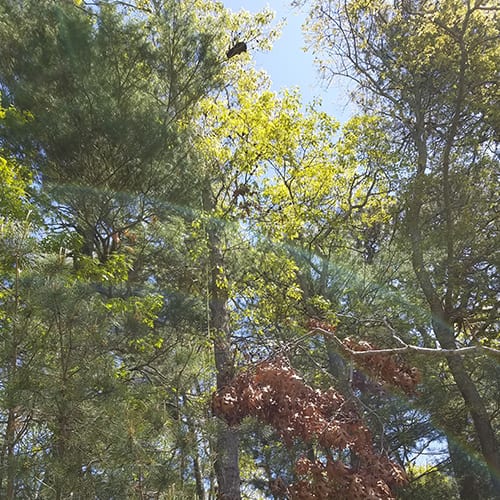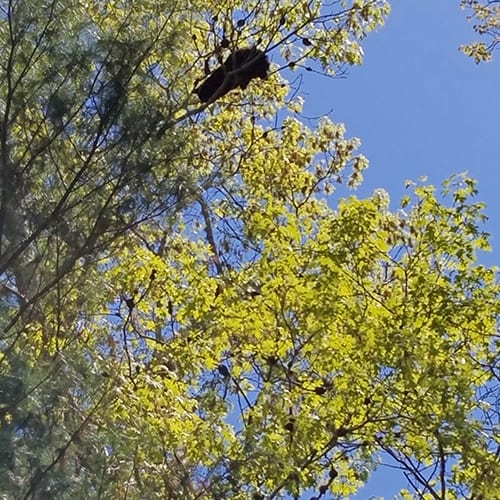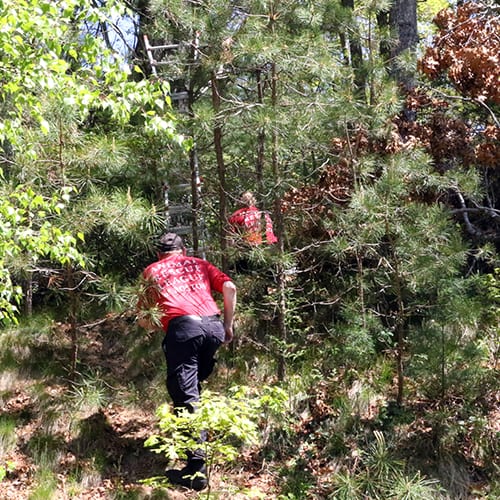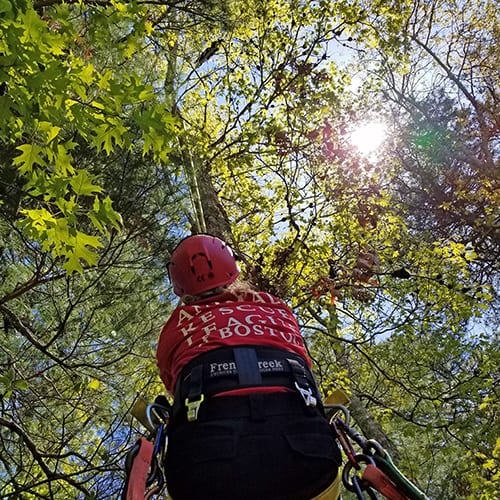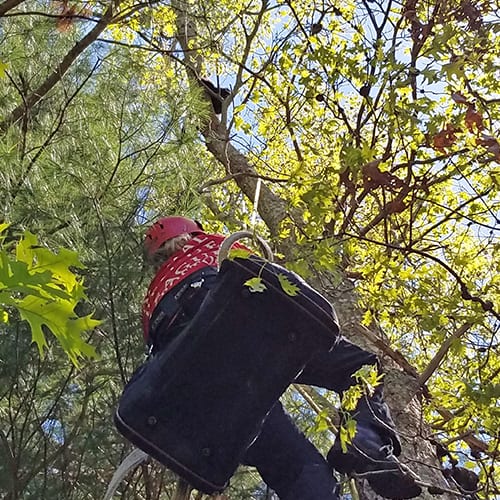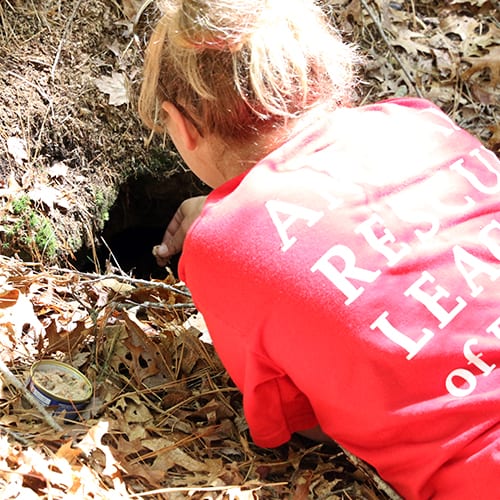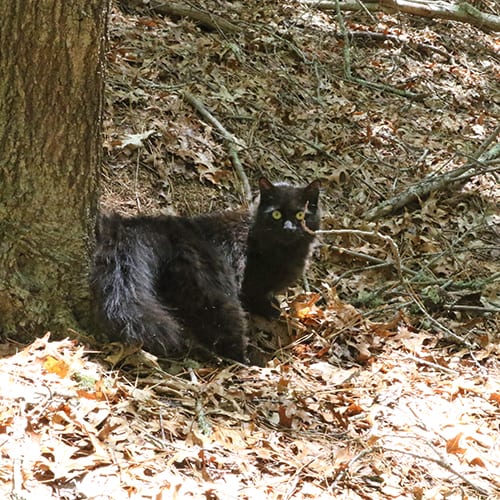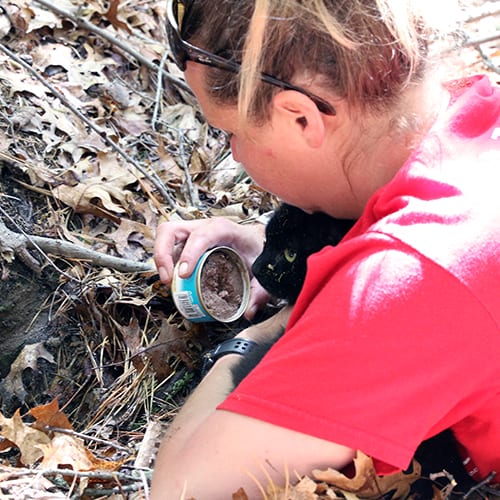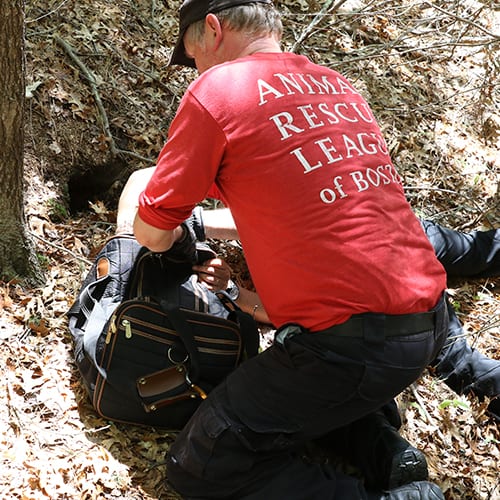Governor Baker and MSP Join ARL for Too Hot for Spot Demonstration
ARL’s fifth annual public awareness campaign
This past Friday, the Animal Rescue League of Boston (ARL) was joined by Massachusetts Governor Charlie Baker, legislators, and the Massachusetts State Police Major Richard Ball to once again remind pet owners of the dangers of heat stroke for pets, particularly in hot cars.
It is the fifth year ARL has imparted the Too Hot for Spot® summer pet safety message throughout the Commonwealth. ARL is spreading this message through social media, flyers, car magnets, media partnerships, and digital billboards throughout the state thanks to billboard space generously donated by MassDOT and IBEW Local 103.
The event took place in front of the Massachusetts State House, and included a demonstration with ARL’s stuffed dog “Spot” to show how quickly the inside of a car can heat up – even with seemingly mild temperatures and the windows cracked.
It was a perfect summer day with temperatures hovering around 80 degrees. In just 10 minutes the temperature inside ARL’s Rescue Services vehicle rose to well over 120 degrees. It’s important to remember that animals do not sweat like humans do, and cannot efficiently regulate their body temperature in an environment such as a hot car.
Massachusetts General Law Ch. 140, Section 174f was signed by Governor Baker in 2016, and prohibits confining an animal “in a motor vehicle in a manner that could reasonably be expected to threaten the health of the animal due to exposure to extreme or cold”. The law also allows first responders and ordinary citizens to enter a vehicle to remove an animal if it’s deemed that its life is in imminent danger.
“While our hope is that no one ever has to rescue an animal from a hot car, we understand those situations unfortunately do arise and lives can depend on a quick response,” said Governor Charlie Baker. “Educating the public on the dangers of leaving pets in hot cars and the measures they can take to rescue an animal in need is a key prevention tool, and I thank the ARL for once again launching this important campaign.”
“Our pets provide limitless love and companionship, and we must do everything to protect them from neglectful owners who time and time again have shown a cruel disregard for their welfare,” said State Senator Mark Montigny, lead sponsor of the 2016 law penalizing the leaving of pets in hot cars.
Despite having a law on the books in Massachusetts, unfortunately Animal Control Officers and law enforcement are still seeing a high number of incidents where animals are left in hot vehicle and enduring needless suffering.
“The Massachusetts State Police and all law enforcement agencies consider animal cruelty and neglect to be serious crimes and assist animal rights organizations in investigating such crimes aggressively,” said Major Richard Ball, commander of MSP Troop H. “We urge the public to be familiar with the law that allows them to take action to rescue an animal confined in a hot car, and to tell law enforcement about any type of animal abuse they see or suspect. If you see something, say something.”
“The ‘dog days’ of summer are the perfect time to keep the safety of our pets in mind,” said State Representative Lori Ehrlich. “I hope this law never has to be used, but everyone should know the dangers of a hot car and what to do if you see an animal in danger. Prevention is best so I’m grateful to the Animal Rescue League of Boston for raising awareness.”
Prevention is Key
ARL’s Too Hot for Spot® campaign is focused on reminding the public that prevention is always the best solution. When temperatures rise, ARL urges pet owners to leave their animals at home.

